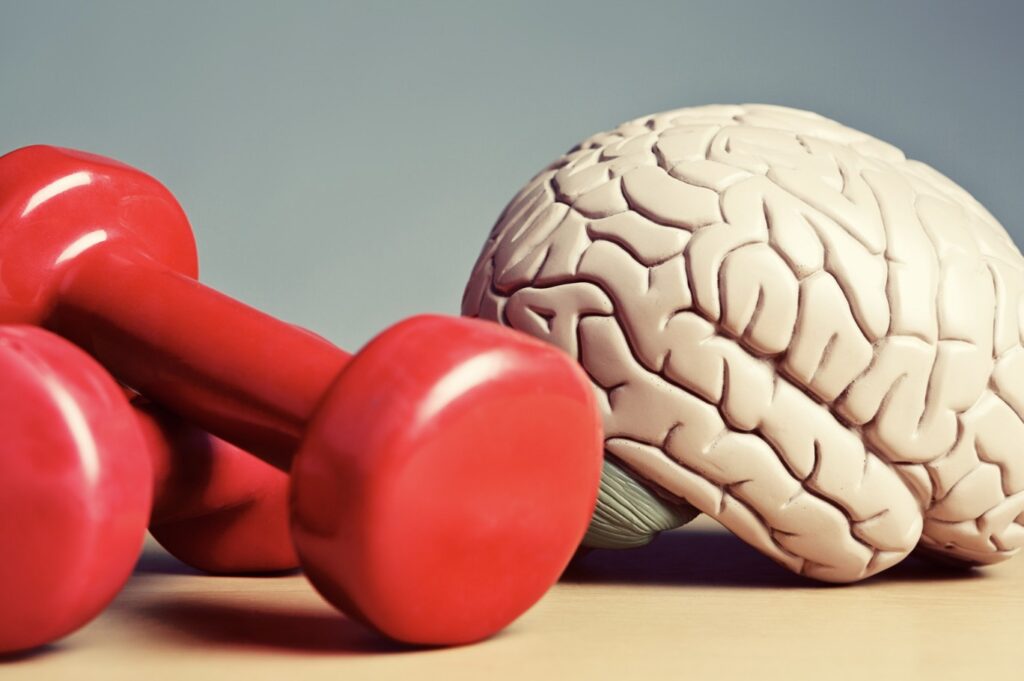September 21st is designated as World Alzheimer’s Day by Alzheimer’s Disease International (ADI) to increase awareness about dementia and Alzheimer’s disease, which are affecting an ever-growing number of people. To highlight the role of exercise in managing these conditions, Ticy City features an article by Prof. Dr. Nithi Mahanonda, a cardiologist at Arun Health Garden, detailing how physical activity can benefit those with dementia.

Exercise and Dementia: How Staying Active Can Benefit Your Brain
The brain is central to all bodily functions, from controlling large muscle groups in your limbs to fine movements in your hands and face. It also handles sensory functions such as vision, hearing, taste, smell, and touch, and is essential for memory, cognition, and emotional regulation.
Dementia, particularly Alzheimer’s disease, is a common condition among older adults. It often results from the death of brain cells due to inadequate blood flow, usually caused by blocked arteries. Alzheimer’s is one of the major health threats of our time, alongside heart disease, cancer, and type 2 diabetes. Unlike these other conditions, however, Alzheimer’s currently has no cure. While treatments for the other diseases have improved survival rates, there are no medications available to reverse Alzheimer’s or restore lost memories.
The challenge in curing Alzheimer’s lies in the fact that its exact causes are not fully understood. What we do know is that Alzheimer’s impairs the connections between brain cells, disrupting communication and normal brain functions. Abnormal protein deposits, which can sometimes be detected in the blood, are also a feature of the disease.
However, for those in the early stages of dementia or at risk, there is hope. While no cure exists, research has shown that regular exercise can help slow the progression of dementia and even prevent it in some cases.

The Benefits of Exercise for Brain Health
Studies involving individuals with early-stage dementia have shown that regular physical activity can improve brain function. Scans conducted after 3-6 months of exercise have revealed that these individuals often have larger brain volumes compared to those who do not exercise.
Effective exercise routines typically include:
- Cardiovascular Exercise: Activities like walking, swimming, and cycling improve heart and lung health.
- Strength Training: Light weightlifting or bodyweight exercises build muscle strength and improve balance.
- Flexibility and Balance Exercises: Activities like yoga and Tai Chi enhance flexibility and prevent falls.
In addition to physical exercise, cognitive training and fine motor skill exercises are recommended to help maintain daily living skills.

Why Exercise is Effective for Alzheimer’s Prevention
Research has consistently shown that exercise can be beneficial in preventing and managing Alzheimer’s, even if it cannot cure the disease in every case. The benefits of exercise include:
Enhanced Brain Health: Exercise stimulates the growth of new brain cells and improves blood circulation to the brain, which enhances overall brain function.
Reduced Inflammation: Physical activity can decrease brain inflammation, which is linked to Alzheimer’s development.
Balanced Hormones and Proteins: Exercise boosts levels of hormones and proteins that help prevent the formation of beta-amyloid plaques, a key factor in Alzheimer’s.
Improved Cardiovascular Health: A healthy heart promotes better blood flow to the brain, supporting cognitive function.
Types of Beneficial Exercises
Aerobic Activities: Such as walking, swimming, and cycling, which improve cardiovascular health.
Strength Training: Includes light weightlifting and bodyweight exercises to increase muscle strength and balance.
Flexibility and Balance Workouts: Yoga and Tai Chi enhance flexibility and prevent falls.
Chair Exercises: Seated movements, like leg and arm lifts, suitable for all ages.
Dancing: Encourages movement and social interaction, making exercise enjoyable.
Water Exercises: Buoyant activities that reduce joint strain and ease movement.
Gardening: Combines physical activity with cognitive stimulation through tasks like planting.
Yoga and Tai Chi: Improve flexibility and balance while also benefiting mental health.
Daily Activities: Tasks such as laundry and setting the table help maintain essential movement skills.

Experts recommend aiming for at least 150 minutes of exercise per week, which breaks down to about 30 minutes a day, five days a week. Start at a comfortable level and gradually increase the intensity. While exercise alone cannot prevent dementia entirely, it plays a crucial role in managing brain health. Nutrition and rest are also important aspects of overall well-being, which we will explore further in future articles.
Imagine the joy of seeing a 95-year-old relative confidently give a wedding toast without forgetting a word or witnessing great-grandparents engaging meaningfully with their great-grandchildren. Regular exercise can help make these heartwarming moments a reality.
References
- Exercise and Alzheimer’s Disease by Alva, M. et al. (Journal of Alzheimer’s Disease, 2020)
- Physical Activity and Prevention of Cognitive Decline by Bauman, A. et al. (The Lancet, 2016)
- Role of Exercise in the Prevention of Alzheimer’s Disease by Aslskog, J. E. et al. (Mayo Clinic Proceedings, 2011)
- Effects of Physical Exercise on Alzheimer’s Disease: An Intervention Study by Smith, J.C. et al. (Journal of Neurology, Neurosurgery, and Psychiatry, 2013)
Author: Prof. Dr. Nithi Mahanonda, Cardiologist, Arun Health Garden Phone: 02-717-4441 / 094-812-7722
Website: www.arunhealthgarden.com
















Leave feedback about this